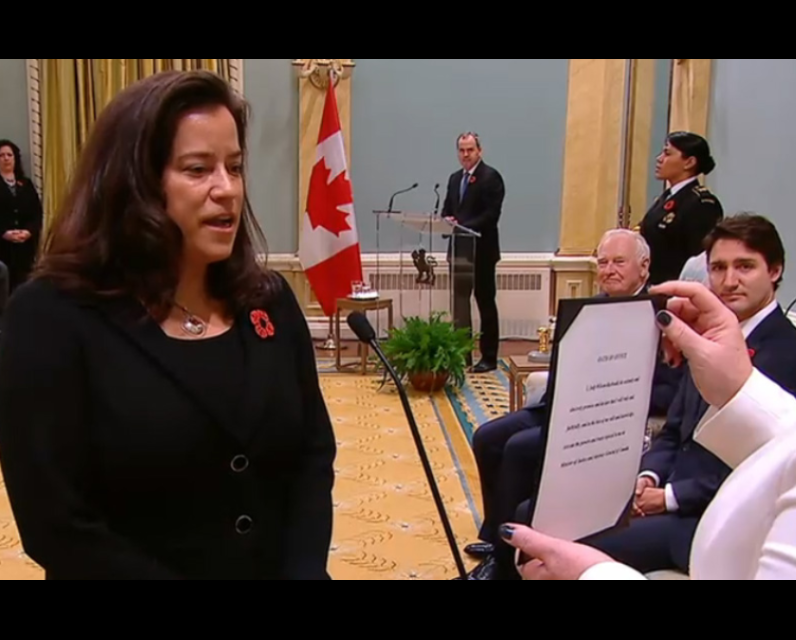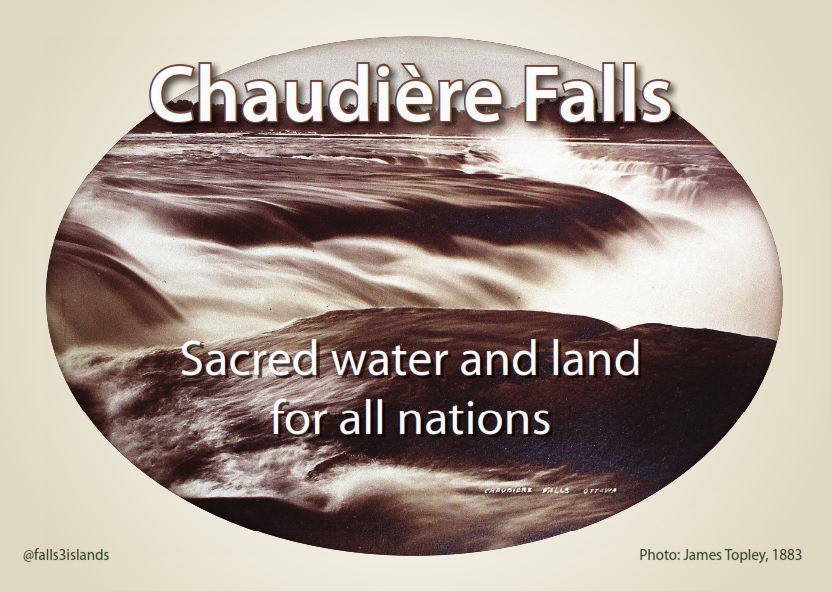Unpublished Opinions
Demand that the Minister of Justice walk the talk in supporting nation-to-nation dialogue with Algonquin chiefs

Canada’s Minister of Justice has an opportunity to reconcile issues around Indigenous title and to unravel the unhealthy impacts that the existing comprehensive land claims policy is having on the Algonquin Nation. This has profound implications for protection of an important sacred site, Akikodjiwan, in the Ottawa River.
Today, Minister Wilson-Raybould’s office replied to correspondence from a Canadian citizen about Akikodjiwan by saying: “I hope you will understand that, as Minister of Justice and Attorney General of Canada, Minister Wilson‑Raybould is not able to intervene or otherwise become involved in the matters you raise.”
Say what? As Minister of Justice, she must be involved in the nation-to-nation discussions that Algonquin First Nations chiefs are asking for because at the heart of their call for protection for the sacred islands and water is the matter of Indigenous rights to unceded land. This is something the Minister knows about, and can act on with her collegues, the Prime Minister and the Minister of Indigenous and Northern Affairs.
Let’s stroll, for a moment, down memory lane.
In December 2013, as Vice-Chief of the Assembly of Frist Nations (AFN) British Columbia, Wilson-Raybould did a presentation to the AFN’s assembly of chiefs about what the federal relationship with First Nations could look like when it comes to comprehensive land claims—and how this new approach represents the face of reconciliation in the matter of Indigenous land rights.
One part of the Algonquin Nation—the segment with reserve lands on the Ontario side of the Ottawa River—has spent two decades engaged in comprehensive land claims negotiations with federal and provincial governments. How the current federal goverment, and all its Ministers, including Wilson-Raybould, approach the matter of reconciliation with the Algonquin Nation—something that emerges a possibility if nation-to-nation talks about Akikodjiwan were to begin—has important implications. The new approach points to a better future for the 10 First Nations that sit on traditional unceded Algonquin territory.
Let’s start with geography, and with the fact that the Kitchi Sibi (Great River or Ottawa River) existed in pre-colonial times as a unifying force, not as a dividing line for the Algonquin Nation. Colonial laws and policies fractured the Nation into 10 tiny pieces, with nine Algonquin First Nations (FN) located in the province of Quebec and one in Ontario.
More than two decades ago, the Ontario FN—Pikwakanagan (formerly called Golden Lake)—entered into land claim negotiations and is now a main player in a corporate structure called Algonquins of Ontario (AOO), which claims to represent the Algonquin Nation on one side of the Ontario border. If this corporation succeeds in finalizing a land claim, the federal and provincial governments of Canada and Ontario will gain title to what is currently unceded and traditional Algonquin territory throughout the Ottawa Valley and along the Ontario side of the Kitchi Sibi watershed.
Northeast of the nation’s capital, Algonquin FNs with postal addresses in Quebec, have publicly stated that their title to traditional and unceded Algonquin territory is threatened by the AOO land claim negotiations. They say that their ancestors lived and hunted and fished in, on and around the Kitchi Sibi. In 2013, they asserted rights and title to lands that the AOO land claim would cede (or surrender) to Ontario and the federal government.
In August 2015, four of the Algonquin chiefs in Quebec asserted Indigenous rights to the islands and waterfall that make up the sacred spiritual site known as Akikodjiwan. They can do this because the land, you see, remains unceded and traditional territory of the Algonquin Nation.
Here’s what Ms. Wilson-Raybould had to say in 2013 (her full presentation is below) about unceded Indigenous lands and the federal government’s role in reconciling First Nations with their traditional territories:
- Canada recognizes that reconciliation is a fundamental objective of section 35 of the Constitution Act, 1982
- Canada recognizes that Aboriginal peoples have existing section 35 rights and it is on this basis that reconciliation processes occur. Section 35 rights include both Aboriginal rights, including Aboriginal title, and treaty rights
- Canada recognizes that the reconciliation of section 35 rights is not limited to comprehensive modern treaties, but may include other forms of agreements and constructive agreements, without the need for extinguishment.
Without the need for extinguishment. These 5 words point to the possibility that a federal government, presumably in nation-to-nation talks, is open to discussing means other than comprehensive land claims as a way to settle Indigenous claims involving unceded lands and waters. This is at the heart of what nine Algonquin FNs are calling for in relation to Akikodjiwan.
This is also what reconciliation looks like, and it is what the Minister must agree to be part of, along with her colleagues, the Prime Minister and the Minister of Indigenous and Northern Affairs. It is morally unacceptable for Wilson-Raybould to wash her hands of discussions about unceded and sacred islands at Akikodjiwan. Write to her today (Jody.Wilson-Raybould@parl.gc.ca) to say that she cannot ignore the brokering role she must play in nation-to-nation talks that need to occur.



Comments
Be the first to comment